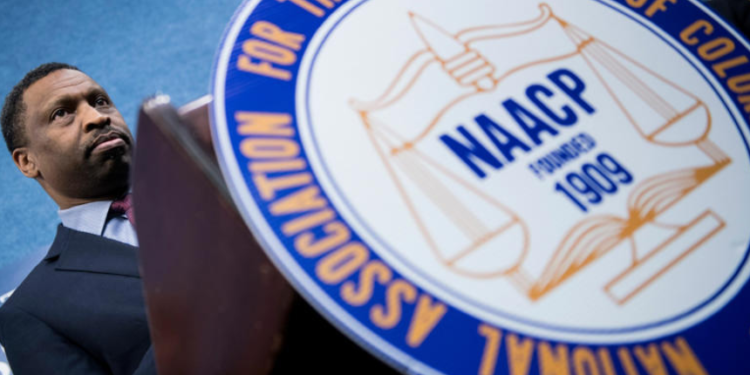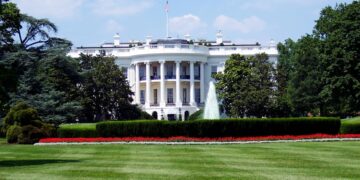May 31, 2025 Story by: Publisher
The NAACP has called for the immediate shutdown of Elon Musk’s xAI supercomputer facility, known as “Colossus,” located in South Memphis.
Local regulators should immediately stop Elon Musk’s supercomputer project from operating in South Memphis because it’s out of compliance with environmental rules,
The NAACP wrote a letter sent Thursday to Shelby County officials.
The civil rights group addressed the request to Dr. Michelle Taylor, director of the Shelby County Health Department, and to the commissioners of Memphis Light Gas and Water. The health department is responsible for implementing federal air regulations in Shelby County, which encompasses Memphis.
The organization cites severe health and environmental risks posed by the facility’s operations, particularly to the predominantly Black communities of Boxtown and Westwood.
Colossus: The World’s Largest AI Supercomputer
Developed by Musk’s artificial intelligence company, xAI, Colossus is situated in a repurposed Electrolux factory in South Memphis. The facility houses approximately 200,000 Nvidia GPUs and is designed to support AI initiatives across Musk’s enterprises, including the chatbot Grok, X (formerly Twitter), and SpaceX. Plans are underway to expand Colossus to accommodate up to one million GPUs, solidifying its status as the largest AI training platform globally.
Environmental and Health Concerns
To power Colossus, xAI has deployed 35 mobile methane-gas generators, many designed by Caterpillar, operating without the necessary air pollution permits. These generators emit pollutants such as nitrogen oxides and formaldehyde, contributing to air quality degradation in an area already burdened by industrial pollution. Thermal imaging by environmental groups revealed that at least 33 of these generators were active simultaneously, contradicting xAI’s claims of limited usage.
The Southern Environmental Law Center (SELC) has estimated that xAI’s Colossus facility in South Memphis emits between 1,200 and 2,000 tons of nitrogen oxides (NOx) annually. This estimation is based on turbine manufacturer specifications and assumed operating conditions, as detailed in a letter from SELC and other advocacy groups to the Shelby County Health Department. These emissions potentially make the facility the largest industrial emitter of NOx in Memphis.
These emissions exacerbate existing health disparities in the surrounding communities, which already experience elevated rates of asthma and other respiratory illnesses. The area is predominantly Black and low-income, and residents have expressed concerns about the environmental and health impacts of the facility’s operations.
Community and Political Response
Local residents and environmental advocates have expressed outrage over the facility’s operations and the lack of transparency from xAI and city officials. At a public hearing in April 2025, community members voiced concerns about air quality and health impacts, noting that they were not consulted or informed about the project’s development. Keshaun Pearson, executive director of Memphis Community Against Pollution, highlighted the historical neglect of South Memphis communities in environmental decision-making processes.
Pearson has been a prominent voice in highlighting the historical neglect of South Memphis communities in environmental decision-making processes. He has emphasized the disproportionate burden of pollution borne by these communities and has called for greater transparency and accountability from both corporate entities and local government officials.
Tennessee State Representative Justin Pearson, who emerged as a prominent environmental justice advocate during the Byhalia pipeline opposition, has also criticized the project. He emphasized the need for clean energy alternatives, stating that “solar panels and battery storage would be a much cleaner alternative to methane gas turbines.”
Regulatory and Legal Implications
The Shelby County Health Department has acknowledged limited authority over the facility due to federal exemptions, though critics dispute the applicability of these exemptions. xAI has applied for permits for 15 of the 35 generators but continues to operate all units without full regulatory approval. The SELC has called for emergency government intervention, including daily fines of $25,000 for non-compliance.
Community Outrage and Lack of Transparency
Local residents and environmental advocates have indeed expressed significant concern over the operations of Elon Musk’s xAI supercomputer facility, known as “Colossus,” in South Memphis. The facility’s rapid development and commencement of operations occurred with minimal public disclosure or community engagement. Many residents and even some city officials were unaware of the project’s specifics until it was already underway.
Public Hearing in April 2025
A public hearing hosted by the Shelby County Health Department took place on April 25, 2025, to address community concerns regarding the facility’s environmental impact. The hearing was notably contentious; a representative from xAI was met with such vocal opposition that they were unable to deliver their prepared remarks.
Looking Ahead
The NAACP’s call for an emergency shutdown underscores the broader national challenges of regulating rapidly expanding AI infrastructure, particularly in historically marginalized communities. As the situation unfolds, it raises critical questions about environmental justice, corporate accountability, and the equitable distribution of technological advancements.
Source: NBC News / Politico / The New Yorker / SELC

















